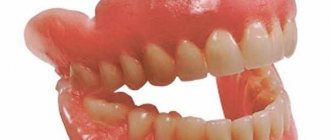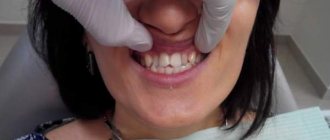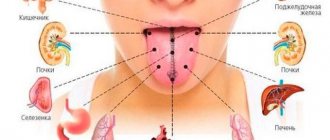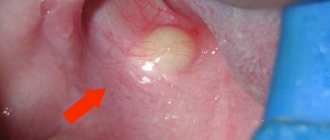They I often testify to the harm to the child and can threaten the health of the mother.
Therefore, even with such a harmless symptom as the appearance of dryness in the oral cavity, it is necessary to immediately determine the cause of the appearance, possible complications and how to bring the body back to normal .
After all, pregnancy is not a disease; it should not be difficult or unpleasant.
Xerostomia as the main symptom
Dry mouth and thirst during pregnancy are called “xerostomia” in the scientific literature. It is also expressed by changes in taste sensations, increased viscosity of saliva, and difficulty swallowing. It is likely to occur under stress or anxiety. The presence of dry mouth for several days should be a signal to immediately contact a doctor to find out its causes and to identify a possible disease at its early stage.
And this is very important. Since it is impossible to allow the fetus to form in the mother’s womb under unfavorable conditions. Dry mouth cannot be said to be a sign of pregnancy. After all, it was also provoked by something.
The frequency of dryness should not be a factor of concern, which is impossible to say if it persists. This indicates that some significant disruption has occurred in the pregnant woman’s body.
The probable cause of dry mouth during pregnancy can be any of the following.
How long does it last?
Hormonal levels will gradually begin to return to normal, and the body will naturally create favorable conditions for the fetus. A woman’s appearance instantly reacts to this, she “prettier” before our eyes. Dry lips go away.
Toxicosis is usually observed in the first trimester of pregnancy. Subsequently, appetite normalizes, and the consumption of necessary food components returns to normal.
What should a pregnant woman do when her lips become very dry? Should you be patient for 3 long months and wait for everything to go away on its own?
No, you don't have to wait. This threatens other, more serious problems. Dry lips are prone to cracking, and infections can enter the body through microcracks.
Dehydration
Frequent urination and vomiting are common symptoms during pregnancy, but unfortunately, they can be the cause of a feeling of dry mouth. High sweating in the summer also does not exclude the occurrence of this condition. For this reason, in order to avoid becoming a victim of dehydration, you should definitely maintain the required water balance in your body by using a sufficient amount of clean drinking water. In late pregnancy, to avoid the possibility of edema, it is recommended to drink water in small sips. Or simply rinse your mouth with water.
What to do? How to treat?
To get rid of dry lips, it is necessary to eliminate the negative provoking factor:
- Drink more fluids. But the main thing is not to overdo it, otherwise dryness will be replaced by swelling;
- Take the necessary vitamins. Eat fruits and fresh vegetables. It is imperative that you take vitamin complexes in consultation with your doctor and drink them strictly as prescribed. Excessive consumption of vitamins can have a negative effect on the fetus;
- Change lipstick, toothpaste, gloss , the use of which provokes allergies;
- Moisturize your lips with balms. This can be done using store-bought cosmetic and hygiene products. But such products must be chosen carefully: without dyes. It’s better to make your own moisturizing balms.
Natural balms
- "Natural moisturizer." Lubricate your lips twice a day with any of these natural products: butter, carrot juice, sour cream, sea buckthorn oil.
- "Rose petals". Mix 2 pinches of fresh rose petals thoroughly with 1 tablespoon of rendered lard. Place the product in a tightly closed container (cream jar). Store in the refrigerator, lubricate lips several times a day;
- "Oil and honey." Mix liquid fresh honey in equal proportions with vegetable oil (olive, peach, almond). Warm the product slightly before applying.
- "Vitamins" Instead of balm, use liquid vitamins. Take either one capsule of vitamin A, or make a mixture by adding the contents of capsules with vitamins E and C.
- Provide special nutrition for your lips. Nutrients, entering the lip tissue, activate cell regeneration processes, the synthesis of elastin and collagen, increase blood circulation and normalize water balance.
Masks
It is useful to make the following homemade masks to nourish your lips:
- "Sour cream and lemon." 1 spoon of fat sour cream mixed with a few drops of lemon juice and any essential oil. Apply to lips for 10-15 minutes. If you are allergic to citrus fruits, lemon should be replaced with honey.
- "Fruit and butter." Butter (can be ghee) - 1 spoon, and the same amount of fruit puree (banana, kiwi, apricot, apple) are mixed and applied for 15-20 minutes. Puree can be made from cucumber, carrots, strawberries.
- "Cottage cheese and medicinal decoction." Prepare a decoction of medicinal herbs in advance by brewing a pinch of the herb in 100 g of hot water and let it brew. Gently dilute 2 tablespoons of fatty cottage cheese with the broth so that you get a mass with a consistency similar to thick sour cream.
Diseases
Impaired nasal breathing with a runny nose forces the girl to breathe through her mouth. The best method to get rid of dry mouth in a certain case is to cure a runny nose. Some diseases, such as diabetes mellitus, anemia, hypertension, the inflammatory process occurring in the salivary glands themselves, diseases of the gastrointestinal tract, require correction and treatment. There is a need to undergo laboratory blood tests and consult experts in order to determine the disease and why dry mouth appears in the early stages of pregnancy.
Useful video
From this video you will learn about changes in the digestive system and the appearance of unpleasant symptoms during pregnancy:
Dry mouth is a very common symptom for pregnant women , which appears in response to all sorts of factors.
This may be taking certain medications or products, toxicosis, hyperhidrosis, pathological conditions and various diseases, and even the psychological situation.
Therefore, there is no point in delaying it, because a symptom is not a problem, but only a signal about its presence in the human body.
How to solve?
If a pregnant girl notices quite often a feeling of dryness in her mouth, she should first consult a doctor. The doctor, in turn, gives directions for tests to rule out diabetes. If a woman takes any pharmaceutical substances, it is important to inform the doctor about this, as they can be a factor in the appearance of dry mouth. And if you change the medicinal product to its likeness, most likely the problem will be solved.
The problem of dehydration of the body is solved by continuously monitoring the water consumed by a woman during the day. The entire volume of liquid used should not be below accepted standards for pregnant women. Even if a girl normally did not consume a large amount of water, during the period of bearing children she should transform her own body and teach it to accept fluid in sufficient quantities. If intoxication with frequent vomiting is considered a factor in dehydration and dry mouth during pregnancy in a woman, you should try to eliminate or at least reduce the frequency of vomiting. To remember to drink water, you can set an alarm on your phone to sound every 2-3 hours. And take liquid according to this signal. And after a few days, the body itself will require water at a specific time of your choice. This will resolve the issue of dry mouth. To eliminate swelling in late pregnancy, you need to drink mineral water, without gas, in small sips, or even simply, as mentioned above, rinse your mouth with water.
Preventive lip care during pregnancy
- To prevent peeling and dry lips, expectant mothers should carefully monitor their diet and avoid prolonged exposure to heat and cold.
- It is important to maintain the humidity level in the living space (at least 60%) and regularly ventilate the room.
- Lubricate your lips with balm or hygienic lipstick 1 hour before going outside. In summer, such products should contain sunscreen filters; in winter, the product is chosen with a thicker consistency.
- Use homemade mask recipes to nourish your lips at least 2-3 times a week.
- Massage your lips regularly. To do this, use soft scrubs made from candied honey and ground oatmeal.
- Try to diversify your diet, including fruits, herbs, cottage cheese, fish, fresh vegetables, legumes, and berries.
- Try to get rid of bad habits - biting and licking your lips.
And the most important thing is not to despair. After all, you have to endure temporary difficulties for the sake of the baby. And by the time of his appearance, the mother should be healthy and the most beautiful.
Liked? Share with your friends!
Treatment depending on the cause
If the feeling of dryness in the mouth of a pregnant girl is caused by difficulty in nasal breathing, then the best method to get rid of it would be to treat rhinitis.
If dryness is caused by one of the diseases such as high blood pressure, anemia, or inflammation of the salivary glands, diseases of the gastrointestinal tract, in order to get rid of this unpleasant feeling, all these conditions should be corrected and treated without exception.
If a girl has special hobbies in food, for example, she greedily consumes pickles, spicy or smoked foods, this can give rise to a feeling of thirst and, accordingly, dry mouth. Salt will retain water in the intercellular space of the body, which will lead to edema and gestosis. All this is very risky during pregnancy. In order not to cause such complications, it is important to adjust your own routine and nutrition menu during pregnancy and breastfeeding.
What are the dangers of dry mouth during pregnancy?
Since dry mouth during pregnancy can be a sign of significant illness, failure to identify these factors can cause extremely sad consequences of the pregnancy itself. A girl may develop fetoplacental insufficiency, gestosis, etc. If the problem is caused by medications or smoking, gingivitis (inflammation of the gums), stomatitis (inflammation of the entire oral cavity), and so on may form (as a result of this). Without exception, this can subsequently provoke unnecessary treatment during pregnancy, the use of pharmaceuticals and other methods.
Is this condition dangerous during pregnancy?
Dry throat is not normal and is always caused by some kind of disorder, whether significant or minor, depending on the accompanying symptoms. Soreness and dryness are a sign of diabetes or severe hypertension. In this case, the woman may develop gestosis and placental insufficiency. Such conditions are very dangerous for the health and life of both the expectant mother and her child.
Dry oral mucosa can lead to gingivitis (inflammation of the gums) and stomatitis, since with an insufficient amount of saliva, which has a bactericidal property, pathogenic microorganisms rapidly multiply in the mouth, provoking inflammatory processes. Such diseases require additional medications, which cannot but affect the health and development of the child.
Prevention of dry mouth in pregnant women
In order to prevent this unpleasant symptom - dry mouth at night during pregnancy (and not only at night) - a woman should adjust her lifestyle to generally accepted medical principles.
Firstly, it is important to resist, or more correctly, to generally refuse to eat salty and spicy foods and dishes.
Secondly, dehydration of the body must not be allowed; it is necessary to use a sufficient amount of pure mineral water without gas.
Thirdly, strictly refrain from smoking and drinking alcohol.
Fourthly, it is important to adhere to all principles of oral hygiene. For example, in order to eliminate an unpleasant odor from the mouth or a nasty taste in the mouth, it is necessary to brush your teeth and the entire oral cavity with special antibacterial agents at least twice a day. In addition, it is important to rinse your mouth with special means after any meal.
Fifthly, it is important to breathe through your nose. And lastly, in dry rooms where a pregnant woman stays, air humidifiers should be used.
dry throat during pregnancy
This is the story of how I got whooping cough. BUT I really hope that it will be useful for mothers of babies who had to get sick. Since there is almost no information on the Internet about whooping cough in adults, I got everything from articles for children and realized that the course of the disease is exactly the same. Therefore, I can tell you what children cannot explain due to their age, and maybe it will help someone.
So, I started coughing on October 5, at 30 weeks of pregnancy (I think the immune system was weakened and whooping cough was picked up against this background), the cough was dry, at first not at all intrusive, but every day it got stronger and stronger, after 2 days I had a scheduled examination with a therapist just to show off the exchange. She listened to my complaints about cough, listened, said that my lungs and bronchi were clean, and prescribed Stodal. I drank Stodal, but I was getting worse, 5 days after the start of the cough it was already so strong, dry and constant that we went to a paid doctor (it was Saturday), she diagnosed Tracheobronchitis, and already in an advanced stage (in her own words) words). Based on my calculations, I now understand that this was just the first week when whooping cough manifested itself, but it is difficult to diagnose. I bought all the prescribed medications, and it was the first hellish night since the start of treatment, since before that I coughed during the day and slept at night. Immediately a wild cough began at night, tachycardia, my heart went off scale, as if it would jump out of my chest, my breathing was rapid, I became scared, I even started having some kind of panic attack, but my husband brought me to my senses in time and calmed me down. We didn't sleep that night. More precisely, we slept in fits and starts, I was sitting, because as soon as I lay down, I was choking with a cough. And this picture began to repeat itself, from that day on I “slept” for another 2 weeks, sitting for 3 hours a night, the rest of the time I dozed or was awake, as the cough was wild and a little wet.
Again at the doctor’s appointment, she says that breathing is already better, the disease in the bronchi has not sunk even lower. On the same day, the gynecologist prescribes an antibiotic, as he is afraid of intrauterine infection of the child. I am undergoing treatment for another week (total 2 weeks from the start of the cough). I seem to be a little better, but the phlegm doesn’t really come out, and the cough continues. There was no appetite, no sleepless nights made themselves felt, the condition was terrible, weakness, nervousness, exhaustion.
Intercostal neuralgia occurred, as the doctor explained to me, this happens with bronchitis, inflammation also occurs in other organs and parts of the body. It was terrible, during the most severe attack I could not move from 6 am to 12 pm, I stood in the room in one position, pain pierced my whole body with any movement, coughing, I could not really breathe, much less sit down or lie down. I just stood slouched and waited for my husband to arrive and take me to the doctor. All these 6 hours my stomach was like stone, I had difficulty calling a gynecologist, she told me to take 2 tablets of noshpa to relieve tone (you can do it 3 times a day). I drank noshpa, my stomach seemed to ease, but again the attack and it was like stone again . It was scary and painful. With difficulty loading me into the car, we drove to the doctor. She looked, did an ultrasound of the kidneys (everything is normal there), prescribed treatment for neuralgia, I felt better, the sharp pain began to go away, the pain remained, but this was nothing compared to those 6 hours.
The 20th of October. Then attacks of suffocation begin. The first one was very small; after I coughed, I could not breathe air through my nose. This began to repeat and get worse. It became difficult to breathe through my mouth. It all started with a cough, you coughed once and your throat seemed to narrow and you could no longer breathe in air, you began to wheeze. You want to inhale, but your throat is closed, once, twice, three times, then something like vomiting happens, but not for long, after each inhalation it’s like vomiting (I’m sorry, I can’t find other words) with a lump of thick mucus. From the very first serious attack, I intuitively leaned out of the window and air began to flow into my throat. The attacks lengthened, it’s very scary and every time the thought in my head is that I won’t survive, I’m going to suffocate. During the day there is still nothing, but as soon as evening approaches, the throat begins to dry out and attacks of suffocation begin. They come unexpectedly, it is impossible to sit and wait without being prepared. As soon as I cough, that’s it, my throat “slams shut”, I run outside (we live in a private house) and start wheezing, just to inhale, then vomit mucus. fresh air was the only thing that helped. And my husband, who jumped out into the street with me, I clung to his hand like crazy, and he told me: “Breathe, breathe, everything is fine...”
Every night was terrible, my husband and I hardly slept, in the evenings I wandered around the yard, because although an attack could happen there, its likelihood was much less than at home. We had no idea yet that it was whooping cough. We went to the doctors, saw a pulmonologist at the regional hospital, she said the lungs and bronchi were clean. I say that I have attacks of suffocation, to which they answer that I simply eat enough before going to bed and the acid comes up (as I go to bed) and a cough begins from heartburn. Writes a referral to the lore. The night again passes with attacks, and they also appear in the morning and afternoon in the car. We are going to the ENT, to the regional one. ENT says that everything is fine with me, writes to me that I have a cough with spasms, explains that it is the glottis that is narrowing. And he suggests trying not to cough. Prescribes a bunch of medications for the nose and throat. By that time, my throat was so dry, as if it had simply been skinned. I thought it was from the bioparox, which I took for bronchitis, but now I understand that whooping cough was already “working” on my eyelashes. My voice almost disappeared, I was wheezing. They told me it was for a cough.
I don’t believe this lore, let’s go to a paid one to play it safe. She actually laughed at me, saying that I’m an inventor, my throat can’t narrow, my nose just doesn’t breathe, at night when I sleep (yeah, sleep that I haven’t had at night for several weeks) I breathe through my mouth, my throat dries out and I I feel like I'm suffocating. She prescribed a bunch of medications to moisturize my throat and nose, and finally said that if my lungs breathe, I won’t suffocate (she’s such a joker...)
The most disgusting thing is that an attack of suffocation appears as soon as you doze off, as soon as you fall asleep, at that very second. Therefore, until 4 in the morning I did not sleep, sat, nodding off, sometimes at the table (when I had neuralgia), sometimes on the bed, at 4 in the morning my sleep deteriorated and I fell asleep for 2-3 hours, in the morning I had an attack.
What the doctors prescribed is, of course, a madhouse, half of the products not only moisturize, but on the contrary dry out the throat, half are not suitable for pregnant women. Moreover, they didn’t really understand what I was complaining about. Or maybe they understood, but no one wanted to get involved with whooping cough. The attacks lasted for the third day. On the fourth night we went to the ambulance, because I simply began to be afraid that I would not live until the morning. At the ambulance they told me that I had tracheitis and that I was suffocating because my throat was dry (25 again). They advised me to put a compress on my chest, I did it and even slept for 5 hours without coughing) (after 3 weeks of torment it was progress, to sleep for so long), we were even a little happy, the day passed relatively calmly, but in the evening the suffocation resumed, getting stronger and longer . One of my husband's friends said that it was very similar to whooping cough. I would never have thought it... but we started looking on the Internet and all the signs coincided. You cough and you can’t breathe, you wheeze and choke, then you vomit with mucus that looks like egg white, it drags on. It must be spat out and removed from the mouth, as it clogs the throat, which can barely breathe through the crack during an attack. In the morning the cough is wet, in the evening it becomes dry and all the most unpleasant things begin...
So, I started sleeping alone in the room, opening the window wide, it was about +5 outside at night, it was cold, I “slept” dressed and wearing a hat. The air from the window brought some relief and the attacks came less frequently. Out of despair, I even had the idea of sleeping on the street, but I was scared to be left without my husband.
Exhausted by all this, I couldn’t even cry for weeks, and as soon as I got a lump in my throat, I immediately had a new attack. A couple of times tears just flowed down my cheeks, you can’t cry or laugh, you can’t inhale sharply, breathe deeply, all this provokes a cough with an attack of suffocation. You can't eat solid food, you might choke and suffocate. I had this with a piece of poppy seed bun. Also, when you run out into the street during an attack, you can catch a cold, because of course there is no question of getting dressed, everything happens instantly. I ran out in pajamas or home clothes, but then there was only one thought - to survive.
the 25th of October. So, having survived another night, we go in the morning to the infectious disease ward, where they admit me and listen to 2 different doctors. They agree that it really does look like whooping cough, they write pneumonia on the card and admit him to the hospital. They send you for an x-ray, since there is no way without it, they assure you that the dose of radiation is small and will not harm the child, they will cover everything with a lead apron. The X-ray shows that I have bronchopneumonia (small, so apparently the doctors didn’t hear about it). I am panicking about how I will be in the general ward, because I need a constantly open window, otherwise I will suffocate in attacks. But the paid wards are all occupied, single rooms are only for patients with chickenpox. An hour later in the ward I had an attack of suffocation with severe vomiting, everyone in the ward got scared, they began to open the window slightly, my bed was near the window, but it was still cold. In the evening I was transferred to the maternity ward. There was only one girl there so far. I spent the night sitting on the bed by the half-open window in a jacket and hat, after taking a nap at 4 in the morning I had an attack, I managed to press the panic button, and I went to the window. A nurse came running and, seeing my attack, said: “Breathe out!” A thought might arise in your head: how do you exhale, with what??? when you can't breathe. But I exhaled, strangled, and it became easier, then exhaled again and again with each strangled breath (it was easier for me to exhale, making my lips a tube). This helped a lot. Then she brought me an inhaler. The saline solution really dried out my mucous membranes, so she brought Lazolvan. For the rest of the night I used an inhaler to prevent attacks. As soon as I feel that it’s here, I quickly turn it on. Thanks to this nurse, she was probably the only person in the hospital who understood what kind of suffocation it was, since she saw and really helped.
Now with every attack I exhaled. Sometimes you couldn’t exhale at all, but you have to pull yourself together and exhale. Often the result was a kind of strangled, stifled “ooh, ooh, ooh” instead of exhaling. But this relaxes the muscles of the throat and bronchi, as I understand it, and air begins to flow, the main thing is not to panic.
They treated me with antibiotics (injections) for pneumonia. On the third day, a blood test came back confirming whooping cough. Before this, the doctor did not believe me that I was choking, she said that I was just panicking from coughing and kept telling me to drink valerian. I started to feel abnormal, I was the same to them, they didn’t even want to know what was really wrong with me. Moreover, in life I am far from being an alarmist and I consider causing myself to suffocate (in their words) an extremely stupid thing to do.
So, the test came, but whooping cough in my situation cannot be treated with anything, they told me to wait, wait out the attacks and endure.
By the way, there was a girl in the ward with bronchitis; she had a neuralgia similar to mine, only in her arm. The doctor said this happens often.
But since pneumonia was being treated, I gained an appetite and began to eat, even though the food was not very good. At night, I still hung out by the window and breathed into the inhaler (when it became easier, I stopped using the inhaler). The girls arrived in the ward, there were five of us. I didn’t want to choke in front of them, and besides, I changed my doctor to a more adequate and understanding one. She understood my situation and discharged me 3 days earlier (I stayed for a week instead of 10 days), prescribing the medications that needed to be taken. The tests were good.
A week and a half has passed from the moment of discharge until today. In total I have been coughing for 1 month and 4 days. At home I sleep with the window slightly open in a separate room, this makes life very easy, each time I sleep longer and longer (for example, if I used to wake up every 30 minutes, now I can sleep for 5 hours without waking up). The attacks of suffocation have disappeared, now there is just a strong cough with the release of nasty glassy sputum, which stretches like rubber. Sometimes this whole thing ends in vomiting. The main thing, again, is to try to spit out the mucus as soon as possible, since it clogs the throat and something similar to suffocation occurs, after which the arms and legs shake from weakness. I have a consistently strong cough in the morning; as soon as I get up, I immediately go to the toilet, knowing that now there will be a cough with sputum, possibly with vomiting. After getting up, I have a wet cough for another 2-3 hours. By the evening the throat always gets dry and attacks of dry cough occur. If you vomit mucus (sputum) during them, it becomes a little easier, since the throat is no longer so dry.
After being discharged, I try to walk more, it’s autumn, it’s good that the air is humid, we go to the lake, we went to the sea for a couple of days, and then I go out into the yard and walk near the house, especially when it’s foggy or raining. Until recently, I never parted with a mug of water; sometimes it prevented a cough. Since it is almost impossible to get up from a lying position without coughing, I got up slowly, with sips of water and breaks. Well, an air humidifier, but we’ve had it for a long time, even before the illness.
During whooping cough, the throat is not at all protected from the inside; all odors, changes in temperature and humidity are felt very acutely. For example, I can’t drive in a car for a long time, no matter what the climate control is, the air in it is dry and my throat dries out, and a dry cough begins. then I wet a napkin and breathe through it.
The other day I found on the Internet some simple breathing exercises for recovery from whooping cough, since it’s still hard for me to breathe deeply, a temperature change can cause a cough, as well as different smells of household chemicals, etc., or laughter. This gymnastics is done lying down.
Another point is urinary incontinence with a strong cough.
While I was sick, I probably read tons of information about whooping cough, many argue whether antibiotics are needed. I still think that by taking a course of antibiotics at the very beginning (when I was being treated for bronchitis), I alleviated my illness a little, since asthma attacks happen up to 50 times a day, I had them mainly in the evening, at night and in the morning (We were in the hospital during the day, but there wasn’t really any fresh air there, that’s why they were there).
Whooping cough should not be treated on its own; one of its main complications is pneumonia, which is what happened to me. It is better to see a doctor. It’s difficult to identify the disease, that’s the problem. It is similar to both bronchitis and tracheitis, and it can be picked up by a weakened immune system after bronchitis. Antibiotics are no longer curable in the last part of the disease; they are given only so that the person becomes non-infectious. Personally, I think it’s correct to take antibiotics at the onset of the disease; the main thing is to identify this disease on time (but how?). As soon as a cough with spasms begins, it is most likely whooping cough (although the doctor told me that pneumonia also has such signs, but only whooping cough has viscous transparent sputum, and it is impossible to confuse it).
I was prescribed to drink valerian in order to somehow calm the center in my head that is responsible for coughing. Of course, this is a little different medicine, as the doctor put it, but pregnant women can’t do anything else.
I still don’t know about inhalations, it’s a controversial issue. One doctor said that it was necessary, the other that it was not. Alkaline inhalations (with saline solution) dried my throat very much, after them my voice completely disappeared, my roommate did the same, and the other one, on the contrary, felt much better after them (they were both being treated for pneumonia). I took inhalations with lazolvan at the hospital, but not at home.
At home, in the room where I sleep, we turned off the radiator so that it wouldn’t heat up, now at night it’s about +5, I leave a small crack in the window to turn it on.
I also almost forgot to write that I was sweating a lot when I was lying down, sweating from coughing, the underwear was almost wrung out, my head was all wet, then when the coughing became less, I still woke up wet and the whole sheet was still in the room Without heating I wake up wet, I read somewhere that this is also a sign of whooping cough.
If the course of the disease is not weak, it is better to go to the hospital for examination. True, it has a huge disadvantage - if you have whooping cough, you need to walk more, sit with the window open, but in the hospital it’s the other way around. I walked at the permitted hours, because the window was slightly open at night, the girls in the ward began to complain to the doctor about colds and runny noses, maybe because of this she discharged me early, understanding how uncomfortable I was here without fresh air and how they felt about me.
I’m giving birth in a month, I don’t know how I’ll breathe during childbirth, at the moment my breathing is out of whack. Therefore, I hope for gymnastics. They say the cough can last a long time, but I need to recover.
Health to everyone, don't get sick! I wrote a lot, I hope it’s useful!!!










